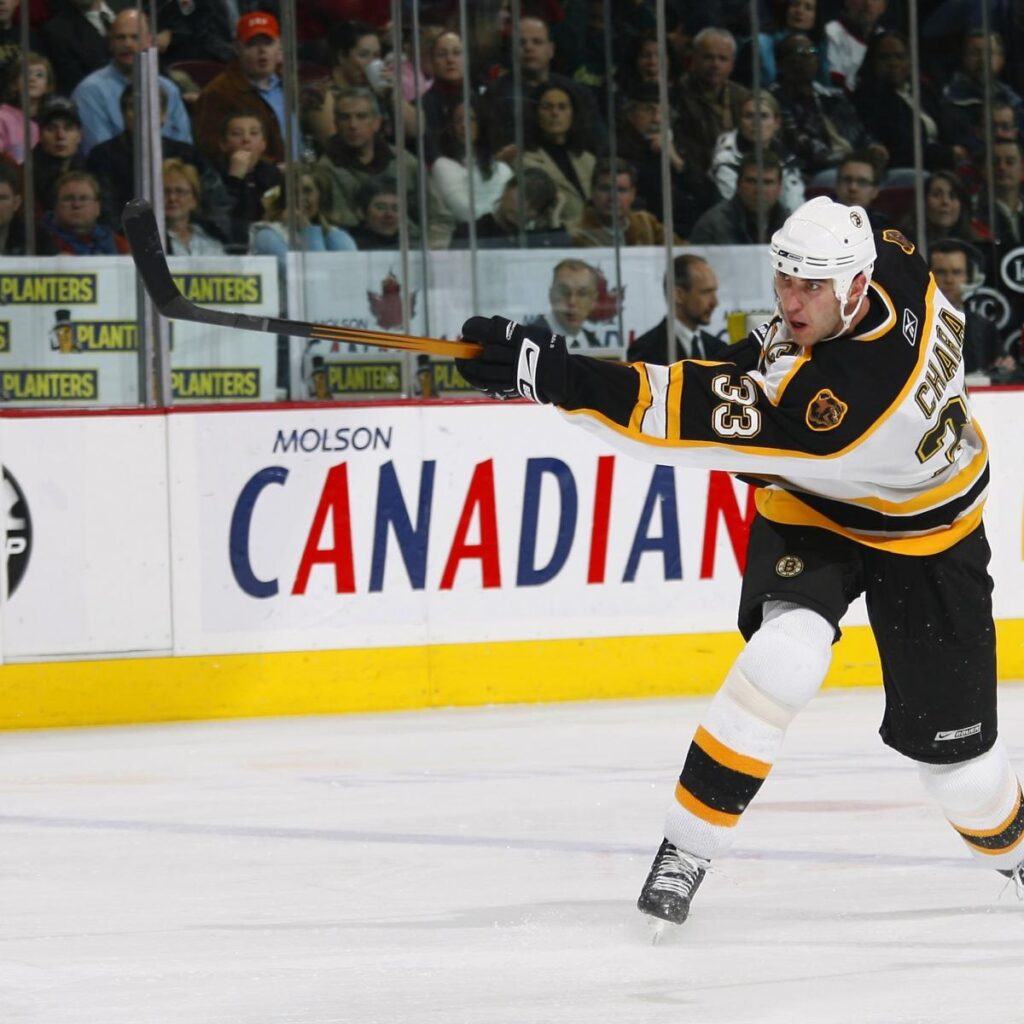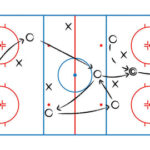A hockey shot can reach speeds of over 100 miles per hour. The fastest recorded shot is 108.8 miles per hour.
Hockey players train rigorously to achieve high shot speeds. The force behind a shot comes from a combination of strength, technique, and equipment. Players use flex in their sticks to store and release energy. This helps achieve impressive speeds. Shot types vary, including slap shots, wrist shots, and snapshots.
Each type has different techniques and speeds. The slap shot is generally the fastest. Speed and accuracy are crucial in the game of hockey. High-speed shots challenge goalies and create scoring opportunities. The evolution of equipment has also contributed to faster shots. Advanced stick technology plays a significant role in modern hockey.

Credit: www.reddit.com
Introduction To Hockey Shots
Hockey is a thrilling and fast-paced sport. One key aspect is the speed of the puck. Understanding hockey shots can enhance your appreciation for the game. Let’s dive into the Introduction to Hockey Shots.
Importance Of Shot Speed
Shot speed can determine the success of a goal. Faster shots are harder for goalies to stop. Players with high shot speed are valuable to their teams. They can change the outcome of a game in seconds. Improving shot speed is a focus in player training.
Historical Context
Hockey has a rich history of powerful shots. In the past, players used wooden sticks. Today’s players use high-tech composite sticks. This has increased shot speed over the years. Famous players like Bobby Hull were known for their powerful shots. Modern players continue to break speed records.
Types Of Hockey Shots
Hockey is a fast-paced sport that requires skill and precision. One key aspect is the type of shot a player uses. Different shots can affect the speed and accuracy of the puck. Below, we explore the main types of hockey shots.
Slap Shot
The slap shot is one of the most powerful shots in hockey. Players wind up their stick high and bring it down swiftly. This shot involves a combination of strength and technique.
Steps to Perform a Slap Shot:
- Wind up the stick to shoulder height.
- Strike the ice just behind the puck.
- Follow through with the stick for maximum power.
Wrist Shot
The wrist shot is known for its accuracy. It involves a quick flick of the wrist. This shot is often used for close-range goals.
Steps to Perform a Wrist Shot:
- Position the puck near the blade of the stick.
- Flick the wrist to lift the puck.
- Follow through towards the target.
Snap Shot
The snap shot combines elements of the slap shot and wrist shot. It’s quick and powerful. Players use this shot when they need to act fast.
Steps to Perform a Snap Shot:
- Place the puck near the blade of the stick.
- Quickly snap the wrist and flick the puck.
- Use a short follow-through for speed.
Backhand Shot
The backhand shot is less common but effective. Players use the back of the stick blade to shoot. This shot can surprise goalies due to its unexpected angle.
Steps to Perform a Backhand Shot:
- Position the puck on the back blade of the stick.
- Push the puck forward while flicking the wrist.
- Follow through to direct the puck.
Each type of hockey shot requires practice and skill. Mastering these shots can make a big difference in the game.
Measuring Shot Speed
Understanding how fast a hockey shot travels is crucial for players. Accurate measurement helps in improving skills and performance. Let’s explore the methods used to measure shot speed.
Radar Guns
Radar guns are a common tool for measuring shot speed. They use radar waves to detect the speed of a moving object. When a puck is shot, the radar gun captures its speed instantly.
Here are some features of radar guns:
- Easy to use
- Provides instant results
- Portable and lightweight
Most radar guns can measure speeds up to 110 mph. They are accurate and reliable. Coaches and players trust them for training and analysis.
High-speed Cameras
High-speed cameras offer another method to measure shot speed. These cameras capture multiple frames per second. They record the puck’s motion in detail.
Advantages of high-speed cameras include:
- High precision
- Detailed analysis
- Playback options
High-speed cameras help in understanding the shot technique. They provide insights into the puck’s trajectory and speed. Coaches use this data to improve players’ shooting skills.
| Measurement Tool | Advantages |
|---|---|
| Radar Guns | Easy to use, Instant results, Portable |
| High-Speed Cameras | High precision, Detailed analysis, Playback options |
Factors Influencing Speed
The speed of a hockey shot can vary greatly. Several factors influence this speed. These factors include player technique, stick technology, and puck dynamics. Understanding these elements can help improve shot speed.
Player Technique
A player’s technique plays a crucial role in shot speed. Proper body positioning is essential. Players must use their legs, hips, and shoulders effectively. A well-timed shot requires coordination. The follow-through should be smooth and controlled. Practice helps players perfect their technique. Consistency in technique leads to faster shots.
Stick Technology
Advancements in stick technology have a significant impact. Modern sticks are lighter and stronger. They are made from advanced materials like carbon fiber. These materials provide better flex and durability. A stick’s flex rating affects shot speed. Lower flex ratings offer more whip, leading to faster shots. Players should choose sticks that match their playing style.
Puck Dynamics
The puck itself also influences shot speed. Puck weight and material are important factors. Standard pucks weigh around 6 ounces. Heavier pucks can slow down the shot. The condition of the puck matters too. Smooth, new pucks glide faster on the ice. The temperature of the puck can affect its speed. Cold pucks tend to be harder and faster. Players should ensure the puck is in optimal condition for shooting.
Fastest Shots In History
Hockey is known for its speed and excitement. One of the most thrilling aspects is the speed of the shots. Some players can hit the puck at incredible speeds. This section will explore the fastest shots in hockey history.
Record Holders
The fastest hockey shots ever recorded are impressive. Zdeno Chara holds the record for the hardest shot in the NHL. He set this record in the 2012 NHL All-Star Skills Competition. Chara’s shot reached an amazing speed of 108.8 mph (175.1 km/h).
Another notable record holder is Shea Weber. In the 2020 NHL All-Star Skills Competition, his shot was clocked at 106.5 mph (171.1 km/h). These speeds demonstrate the raw power these players possess.
Memorable Moments
Several moments in hockey history stand out due to the speed of the shots. One memorable moment is Al Iafrate’s shot in 1993. His slap shot reached a speed of 105.2 mph (169.3 km/h).
Another unforgettable moment is Bobby Hull’s legendary slap shot. Though not officially recorded, his shots were estimated to reach over 118 mph (190 km/h). These moments have left a lasting impression on hockey fans.
| Player | Speed (mph) | Year |
|---|---|---|
| Zdeno Chara | 108.8 | 2012 |
| Shea Weber | 106.5 | 2020 |
| Al Iafrate | 105.2 | 1993 |
Training For Speed
Improving the speed of a hockey shot requires dedicated training. Players must focus on both strength and technique. This helps in achieving faster and more powerful shots. Below are key areas to focus on.
Strength Training
Strength training is crucial for increasing shot speed. Strong muscles generate more power. Here are some effective exercises:
- Squats: Build leg strength for a solid base.
- Deadlifts: Improve core and lower body power.
- Bench Press: Enhance upper body strength for powerful shots.
A combination of these exercises helps in overall strength improvement. Aim for 3 sets of 10-12 reps each. Consistency is key.
Technique Drills
Perfecting your technique is just as important as building strength. Focus on the following drills to improve your shot speed:
- Wrist Shot Drills: Practice quick wrist movements.
- Slap Shot Drills: Work on the power and accuracy.
- Snapshot Drills: Combine speed and precision.
Regular practice of these drills enhances muscle memory. This leads to faster and more accurate shots.
| Exercise | Muscle Group | Reps | Sets |
|---|---|---|---|
| Squats | Legs | 10-12 | 3 |
| Deadlifts | Core | 10-12 | 3 |
| Bench Press | Upper Body | 10-12 | 3 |
By combining strength training and technique drills, players can significantly improve their shot speed. The key is to remain consistent and focused.
Technological Innovations
New technologies have changed how we measure the speed of a hockey shot. Players today use advanced tools to improve their game and track their progress. Let’s explore some of these exciting innovations.
Smart Sticks
Smart sticks are a game-changer in hockey. These sticks have sensors that measure shot speed, angle, and force. Players get instant feedback on their performance. This helps them adjust their technique and improve.
Smart sticks also connect to apps. The apps show data on speed, accuracy, and consistency. This data helps players and coaches make better decisions. It’s like having a coach in your pocket!
Advanced Analytics
Advanced analytics use data to track and measure hockey shots. Cameras and sensors record every movement. These tools capture details like shot speed, puck trajectory, and player positioning.
Coaches use this data to create training programs. They can see which areas need improvement. Players can focus on specific skills to get better. Analytics help players understand their strengths and weaknesses.
| Technology | Benefits |
|---|---|
| Smart Sticks | Instant feedback, better technique, app connectivity |
| Advanced Analytics | Detailed data, training programs, skill improvement |
These innovations make hockey more exciting and competitive. Players can now measure and improve their shot speed like never before.

Credit: rinkresult.com
Impact On The Game
The speed of a hockey shot can change a game. It influences offensive strategies and challenges goalies. Understanding its impact helps teams improve their play.
Offensive Strategies
Teams with players who shoot fast have an advantage. These players can surprise goalies and defenders. A quick shot can create scoring opportunities. Coaches design plays around these players.
- Quick passes to set up fast shots
- Screening the goalie to block their view
- Using rebounds from fast shots
Fast shots also force defenders to react quickly. They need to block shots or clear the puck faster. This creates more space for offensive plays.
Goalie Challenges
Goalies face a tough job against fast shots. They have less time to react. This makes positioning and reflexes crucial. Goalies need to anticipate the shot’s direction.
Here are some challenges goalies face:
- Reading the shooter’s body language
- Reacting to deflections and rebounds
- Maintaining focus under pressure
Teams with fast shooters can exploit these challenges. They aim to catch goalies off guard. This can lead to more goals and wins.
Future Of Shot Speed
The future of shot speed in hockey is thrilling. Players are faster and stronger. Technological advancements are making shots even more powerful. This section explores emerging trends and potential records in shot speed.
Emerging Trends
Emerging trends in hockey shot speed are exciting. Technology is playing a big role. New stick materials are enhancing shot power. Training techniques are also evolving. Players use advanced methods to increase their shot speed. Analytics are helping players understand their performance better.
- High-tech sticks
- Advanced training techniques
- Performance analytics
Potential Records
Potential records in shot speed are within reach. The current record stands at 110.3 mph by Zdeno Chara. New technology may soon break this record.
| Player | Shot Speed (mph) |
|---|---|
| Zdeno Chara | 110.3 |
| Shea Weber | 108.5 |
| Al Iafrate | 105.2 |
Future players might break these records with ease. As technology evolves, we will see faster shots. The future of shot speed is bright and promising.

Credit: www.amazon.com
Conclusion
Understanding the speed of a hockey shot adds excitement to the game. Players train hard to increase their shot speed. Faster shots can significantly impact the game’s outcome. With advancements in technology, measuring shot speed has become more accurate. Keep following our blog for more insights into the thrilling world of hockey.


